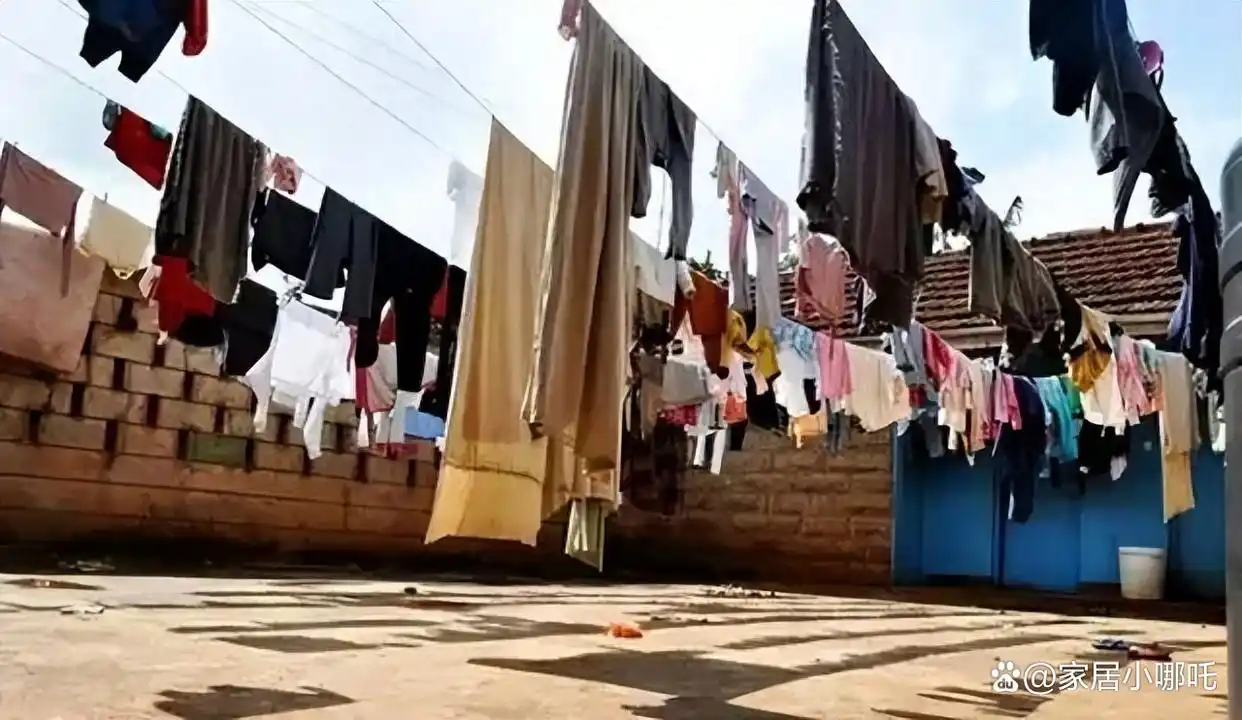The ban on outdoor clothes drying isn't imposed by the government, but by HOAs (Homeowners Associations), non-governmental organizations that manage residential communities. Almost every standalone house or apartment complex has an HOA, and homeowners or renters are required to join.
HOAs collect fees and establish numerous living rules, from lawn mowing and planting to laundry drying. Theoretically, residents can meet to change regulations. However, HOAs often require very high attendance and approval rates, making this nearly impossible since most residents aren't interested in meetings.
The reason HOAs prohibit clothes drying is that clotheslines and exposed laundry are considered unsightly and diminish property values. Many residents agree with this view. Consequently, clothes dryers have become almost mandatory in every American household. Dryers use electricity or gas, accounting for 10% of household energy consumption annually.
 |
Historically, Americans have been prohibited from drying clothes on porches or outdoors. Photo: Aboluowang |
Historically, Americans have been prohibited from drying clothes on porches or outdoors. Photo: Aboluowang
Amid inflation and rising electricity and gas prices, this cost has become a significant burden. Those without private dryers must spend extra money at public laundromats.
In recent years, with rising living costs and the growing green living trend, more Americans support outdoor drying. Sun-drying reduces carbon emissions and saves energy. Sunlight is also a natural disinfectant, extending the lifespan of clothes. Aesthetically, many believe that "sun-dried clothes" are truly beautiful and natural, instead of the "artificial, movie-set feeling" that HOAs try to impose.
"Cutting back on unnecessary expenses is the first line of defense in an economic crisis. Ditching the dryer and using sunlight is the most practical way to save," Pennsylvania State Representative Lisa Borowski emphasized.
The resistance isn't limited to appeals. Many have deliberately violated the rules, accepting hefty fines of 1,000-2,000 USD. These penalties and resulting legal disputes have transformed laundry drying into a social issue.
Public pressure has been so great that over a dozen US states have passed laws preventing HOAs from restricting residents' right to air-dry laundry. On 13/5, the Pennsylvania House of Representatives passed the "Right to Dry" bill, allowing residents to dry clothes outdoors. If approved by the Senate, Pennsylvania will become the 21st state to recognize this right.
Borowski stressed, "A neighborhood isn't a movie set. It's where real people live. It's absurd that we have to pass laws so people can utilize the sun – a free and clean energy source – to dry their clothes."
From a small backyard matter, the "right to dry" is becoming a new symbol in a larger debate about personal freedom and environmental responsibility in the US.
Bao Nhien (Via Delawarevalleyjournal/Aboluowang)












